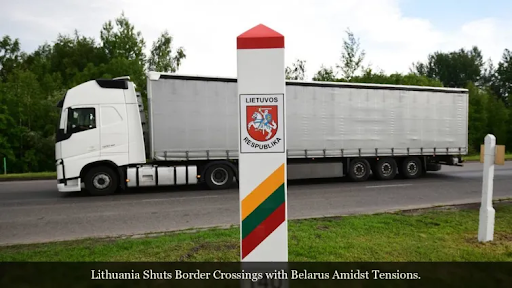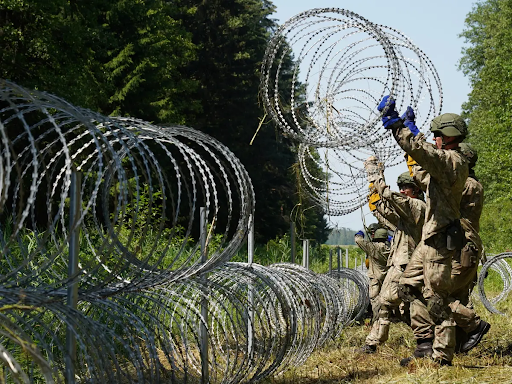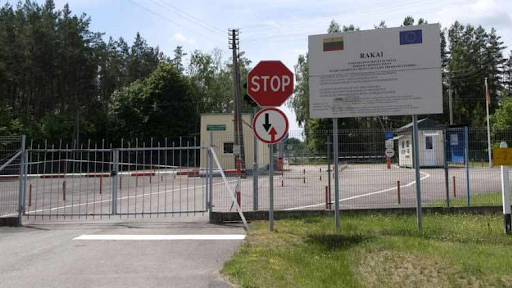
Lithuania has embarked on a significant strategic decision, announcing the closure of two out of its six border crossings with Belarus. This move, effective from Friday, underscores the nation’s response to shifting geopolitical dynamics, increasing national security threats, and concerns over smuggling activities.
The two border crossings in question, Tverecius and Sumskas, primarily serve non-commercial vehicles and have been deemed temporarily closed by the Lithuanian government. The decision emerges from a comprehensive evaluation of the evolving geopolitical landscape and the potential threats posed by these specific entry points.

Of particular concern is the ongoing shelter provision to members of the Russia-based Wagner mercenary group by Belarus. This development has raised alarm bells in neighboring countries, including Lithuania. The Wagner group’s presence in Belarus prompted Western nations, including Lithuania, to enhance their security measures along the border. The closure of these two crossings aligns with Lithuania’s proactive stance in safeguarding its national security interests and thwarting potential security breaches.
The repercussions of Belarus granting shelter to members of the Wagner group resonate beyond Lithuania’s borders. Poland, another neighboring nation, has also enacted stringent restrictions on entry from Belarus. Latvia, too, has taken a proactive approach, dispatching reinforcements to its border in response to the evolving security dynamics in the region.
Lithuania’s decision to temporarily close these crossings underscores the nation’s commitment to prioritizing the security and welfare of its citizens. The affected traffic from Tverecius and Sumskas will be redirected to Medininkai, the largest of Lithuania’s six border checkpoints. Deputy Minister of Transport Agnė Vaiciukeviciute clarified that this measure is a temporary response to the current security challenges.

Latvian Prime Minister Krisjanis Karin emphasized the significance of upholding border security for the nation’s well-being and stability, both within the country and across Europe. The increasing pressure from Belarus has led Latvia to bolster its border defenses, reflecting the shared regional concerns over potential security breaches.
The decision by Lithuania resonates even more profoundly considering the backdrop of regional tensions. In June, the Russia-based Wagner mercenary group triggered a crisis by engaging in a mutiny, challenging the authority of Russian President Vladimir Putin. The situation was resolved through an agreement allowing the Wagner fighters to either join the Russian army or relocate to Belarus. Belarus’s role in this episode underscored its strategic alignment with Russia and had far-reaching implications for neighboring nations.

As the geopolitical landscape continues to evolve, Lithuania’s move to close these border crossings highlights the intricate balance that nations must strike between security and international relations. The nation’s resolute response to emerging security challenges sends a strong signal about its commitment to protecting its citizens and maintaining regional stability. It also raises broader questions about the need for adaptive and agile security measures in an interconnected world.
Ultimately, Lithuania’s strategic decision to temporarily close two Belarus border crossings signifies its proactive approach to safeguarding national security interests amidst evolving geopolitical realities. The move is a testament to the delicate interplay between national security concerns, geopolitical shifts, and the unwavering commitment to ensuring the well-being of its citizens.





